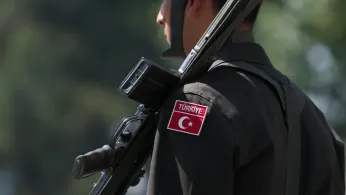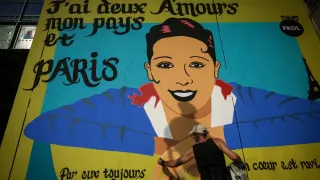
4 hours ago
Viral Tweet Falsely Claims Only 'Top' Gay Men Can Serve in Turkish Military
READ TIME: 3 MIN.
A recent viral tweet has set social media abuzz with the claim that gay men are permitted to serve in the Turkish military only if they are "tops," referring to their sexual role. According to the post, "passive (bottom) gay men are not allowed to serve in the Turkish military," while "active (top) gay men are permitted to serve in the armed forces" . The tweet, which quickly gathered thousands of reactions, has prompted scrutiny of both its accuracy and the broader realities of LGBTQ+ military service in Turkey.
Contrary to the viral claim, there is no official Turkish military policy distinguishing between "tops" and "bottoms" among gay men. In fact, Turkish law and military regulation broadly discriminate against all homosexual men, barring them from service regardless of sexual role . The Turkish Armed Forces historically classify homosexuality as a "psychosexual disorder," and men who declare their homosexuality are considered "unfit" for military service. This policy is rooted in outdated medical definitions and is explicitly documented in military health regulations .
Until recent years, conscripts seeking exemption on the basis of their sexuality were subjected to invasive and degrading procedures to "prove" their homosexuality, including personal interviews, psychological evaluations, and even demands for photographic evidence . Although the requirement for physical proof was officially removed in 2015, the process remains stigmatizing. Individuals must still disclose their orientation verbally to a military doctor and may be given an "unfit" report, which can have lasting social and professional consequences .
The viral rumor appears to have originated from a misinterpretation of the Turkish military’s practice of scrutinizing and often policing the sexual behaviors and identities of conscripts. The origins of the myth may lie in the types of intrusive questions previously asked during these evaluations, which sometimes focused on sexual practices and gender expression . However, there has never been an official distinction between "active" and "passive" roles as a basis for eligibility to serve.
Online, the viral tweet was quickly debunked by LGBTQ+ advocates and journalists. As reported by The Pink News, the rumor is "unsurprisingly, false," and being a "top" does not provide any special treatment or greater acceptance within Turkey’s armed forces .
Turkey is often seen as more socially liberal than many of its neighbors, but LGBTQ+ rights remain a contentious issue. Military service is mandatory for all able-bodied men between the ages of 18 and 41, and there is no provision for conscientious objection . Gay men who are exempted from service frequently face discrimination in civilian life, as records of "unfitness" due to homosexuality can be leaked or used as grounds for further marginalization .
Despite periodic legal challenges, Turkey’s courts have largely upheld the military’s discriminatory policies. In 2018, Turkey’s Constitutional Court rejected a bid to remove the rule allowing expulsion of LGBTQ+ personnel, reaffirming the military’s right to discharge anyone found to be homosexual .
The rapid spread of the viral tweet points to both the power and the pitfalls of social media in shaping public understanding of LGBTQ+ issues. While social platforms can amplify marginalized voices and bring attention to discrimination, they also enable the rapid circulation of misinformation. For Turkish LGBTQ+ people, such rumors can reinforce stereotypes and distract from the very real challenges they face—including stigma, official discrimination, and lack of legal protection.
LGBTQ+ advocacy groups in Turkey and abroad continue to call for the end of discriminatory military practices and for greater public education on sexual orientation and gender identity. As the online conversation around the viral tweet demonstrates, accurate information and supportive dialogue remain crucial in the fight for equality and dignity for all.






